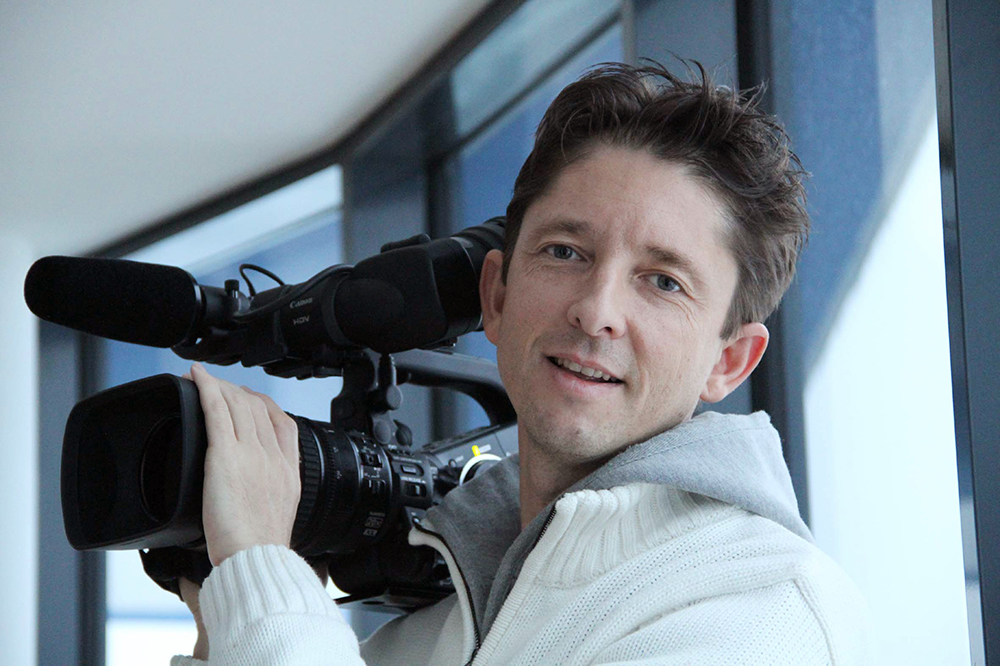“The admission exam made an especially strong impression on me,” recalls P.A. Straubinger when asked about memorable occurrences of his student days. It was in 1989 that he began studying production as well as camera technology and cinematography at Film Academy Vienna. “Studying there really does introduce you to all aspects of film production. And the greatest thing about the Film Academy was always the practical work.”

Straubinger had already discovered his passion for film and filmmaking as a child, when he’d begun making movies in the Super-8 format. It was therefore only logical that he go on to study at Film Academy Vienna, Austria’s only place of university-level training for filmmakers. Film isn’t the only medium he can get excited about, though; he’s also interested in radio. And before arriving at the Film Academy, he’d already gathered experience at a radio station in the Dominican Republic while spending a year abroad there. During his studies at the mdw, he ultimately succeeded in uniting his two passions as a film critic for national pop station Ö3. Reaching large numbers of people with his work was and still is a central motivation: “Working all night and having thousands of people hear the results the next day turned out to be really exciting,” says Straubinger of his fascination with film criticism on the radio. He has continued working as an Ö3 film critic to this day—and indeed, he views this opportunity to deal with films in such a deliberate and conscious way as a great privilege.
He says that film critics should first and foremost compare the films they’re reviewing with other films and only then add their own personal opinions—with authenticity and continuity being crucial factors in good film criticism, rather than passing judgment based on some elitist position. “Whether I like it or not: as a critic, I’ve got to own what I say and convey it to my listeners. And being a critic entails watching a huge number of movies and being in a position to say what works and what doesn’t,” Straubinger emphasises.

P. A. Straubinger enjoyed some very clear resonance of his own not so long ago with his cinematic documentary Am Anfang war das Licht [In the Beginning There Was Light]. In it, he presents his research on the topic of “breatharianism” and accompanies people with the camera who claim to nourish themselves with light alone. Am Anfang war das Licht was watched by over 100,000 moviegoers, making it one of 2010’s most successful documentaries. And while P. A. Straubinger received a great deal of positive feedback—even months after its cinematic release, he was still answering countless E-mails and letters on it every day—the film’s topic also occasioned a great deal of controversy. Some people’s reactions were downright aggressive; the filmmaker thinks this was because his film questioned their existing worldviews. His film was also the object of extensive discussion both in the press and in Internet forums. “It’s a compliment when people spend so much time on your film,” concludes P. A. Straubinger. So what makes a film a good film? “A good film needs to have a clear message that doesn’t get expressed straight out,” says Straubinger. “A documentary, after all, can’t truly reveal the truth; all it can do is authentically convey what a filmmaker experienced during his research on a certain theme.” The reactions to his own movie, in any case, have lent further reinforcement to the stance he takes up as a film critic: “In criticism, the most important thing is to always have the greatest respect for the artist.”

